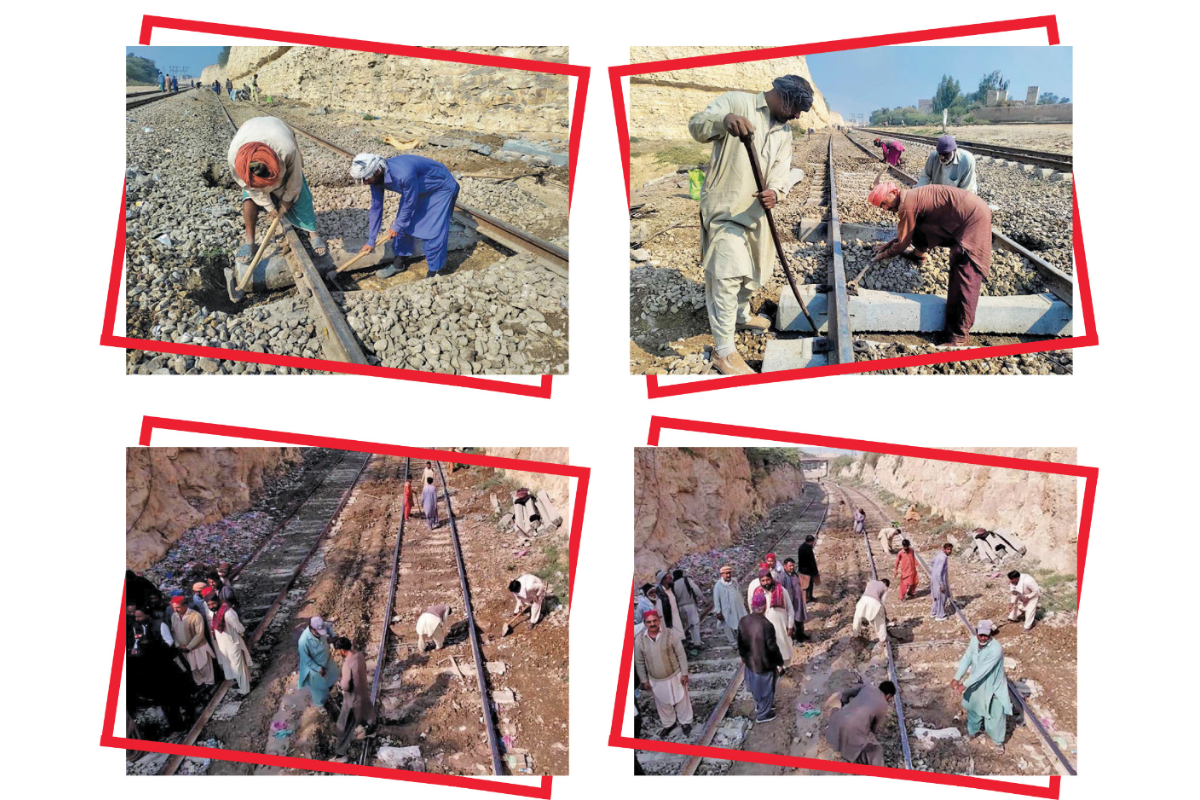
Gangmen in Trouble
The labour force that keeps trains on tracks hasn’t received a single increment since 1985
SUKKUR: Once the most efficient and affordable mode of traveling between Peshawar and Karachi, Pakistan Railways has been whistling down the track to deterioration during the last five years or so. This is evident in its declining standards of administration and revenue generation. Things are made worse by frequent reports of accidents and derailments caused by ill-maintained tracks and bad traffic controls. Several passengers have died or suffered injuries during these mishaps.
Pakistan Railways Sukkur Division has been the worst hit. Its 524-km track that stretches from Khanpur town in Punjab to Tando Adam in Sindh has seen some of the worst rail accidents in recent years.
Much of the blame for this is being laid on the inattention of the government, which has led to creeping flaws within the railways management and has led to huge losses of revenue. But one group of railways workers who continues to stand up day and night to handle mishaps across this stretch are the railways’ labour force, called gangmen.
There are about 2,200 gangmen employed in the Sukkur Division. Whether it’s day or night, heat or cold, it is them who put the trains back on the tracks after each derailment. They remain on duty until the railway track is restored and the debris accumulated as a result of the accident is removed from the site.
As such, many describe them as the backbone of Pakistan Railways. But in their official status, they command neither much respect nor enough wages to take good care of their dependents. Every gangman is recruited in basic pay scale (BSP)-2, with a salary less than Rs 30,000 a month, and retires in the same grade with the same salary after 25 years of service.
In a long-forgotten past, just like the rest of the government employees, the gangmen too enjoyed annual increments and upgrading of their pay scales in accordance with the length of their service. But this stopped in 1985, says Khair Mohammad Tunio, secretary of the Pakistan Railways Employees (PREM) Union. Certain service allowances continued to be paid to them for several years, but those, too, have now been stopped, he says.
Apart from the regular gangmen, there are around 700 gangmen employed on temporary basis, with salaries as low as Rs 22,000 per month. To make life worse for them, they haven’t been paid salary during the last six months.
Mr Tunio says that if there are no gangmen in the railway department, then after every accident the rail tracks will remain closed for several days, choking up the entire traffic schedule of Pakistan Railways.
Asif Ali Leghari, who is president of the Rohri branch of the railway workers’ union, reiterates problems faced by the gangmen, saying that those who perform the ultimate job to keep the railways on track are turning out to be the department’s worst victims.
“The concerned officers of the department do not pay any attention to the problems of these workers, which is triggering corruption among the gangmen,” he says, adding that the railways administration should resume the routine annual upgradation of their services which will bring proportionately higher wages to them and help them support their families.
Bol News tried to contact Khadim Hussain Bhanbhro, the Sukkur Division head of the Pakistan Railways, to seek his views on the problems faced by the gangmen, but he declined to offer any comment.
Catch all the National Nerve News, Breaking News Event and Latest News Updates on The BOL News
Download The BOL News App to get the Daily News Update & Live News.












 Read the complete story text.
Read the complete story text. Listen to audio of the story.
Listen to audio of the story.